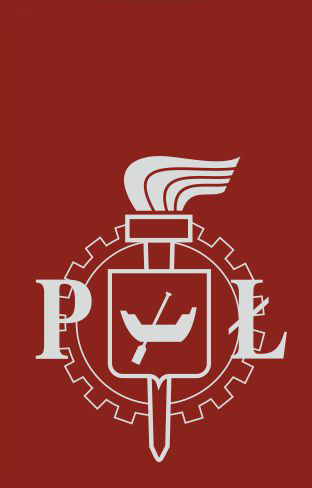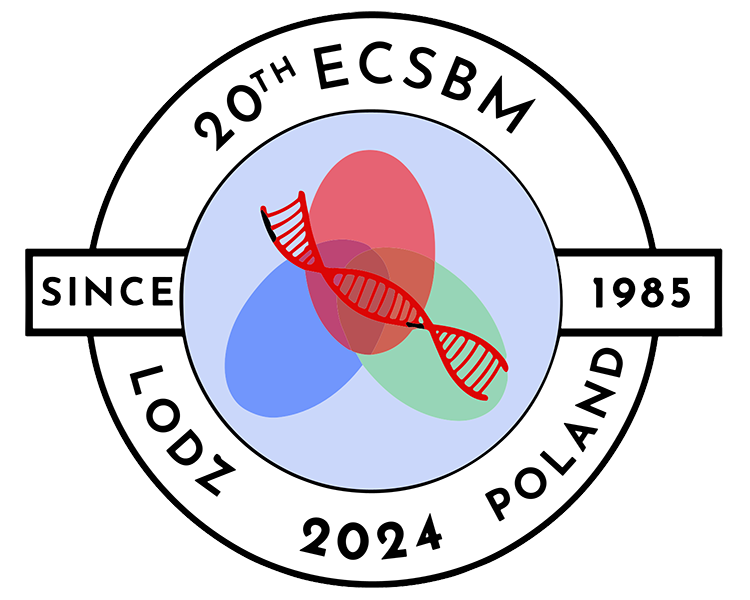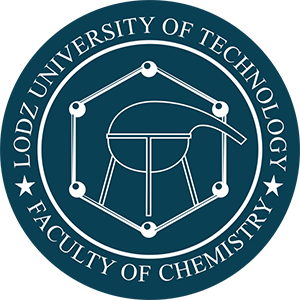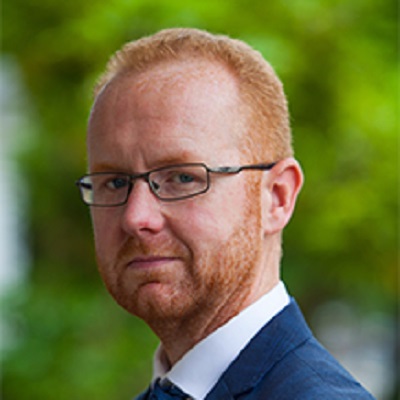Bioanalytical Applications
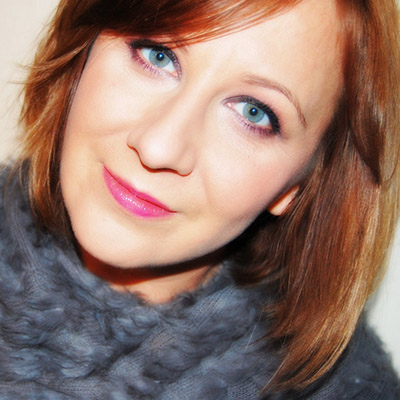
Prof. Kamilla Małek
(Jagiellonian University in Kraków, Poland)
Kamilla Malek holds a PhD and habilitation (DSc) in Chemistry from Jagiellonian University in Krakow (Poland). In 2023, she was appointed as a full professor at the Faculty of Chemistry of JU and has been working in the Raman Imaging Group. Her research is focused on developing FTIR- and SERS-based diagnostic tools for recognizing cancer- and inflammation-related diseases. She has a particular focus on advanced vibrational spectroscopy and its imaging approaches to provide insights into biochemistry and recognition of early phases of inflammation and civilization diseases in bodily fluids (spectral liquid biopsy), cells (spectral cytology), and tissues (spectral histopathology). Now prof. Malek develops IR and Raman data fusion to assess the functionality of the 3D models of the blood-brain barrier. She has published over 100 articles and book chapters and 2 patents. The JU Rector and the Ministry of Science awarded Kamilla Malek's research several awards.

Prof. Anna Sroka-Bartnicka
(Medical University of Lublin, Poland)
Anna Sroka-Bartnicka graduated chemistry at Marie Curie Sklodowska University in Lublin, Poland in 2005. She did PhD in Poland at The Centre of Molecular and Macromolecular Studies Polish Academy of Sciences in the field of Mass spectrometry and Solid State NMR of biodegradable polymers in Lodz in 2011. As a Post Doc she did discipline hoping to Vibrational Spectroscopy and chemical imaging of biomaterials and tissues. Anna worked in several outstanding units including Imperial College London in UK and Stockholm University in Sweden. She returned to Poland, to Medical University of Lublin where she develop her scientific passions about imaging spectroscopy in case of structural analysis of biomaterials and biological samples (plants and animal tissues). Her research focuses in the application of an interdisciplinary approach using different complementary spectroscopic techniques vibrational spectroscopy imaging (IR and Raman spectroscopy) and mass spectrometry imaging (MALDI MSI). Anna was as the principal investigator in 3 research projects financed by the Foundation for Polish Science, National Science Centre and National Science Center for Research and Development ( 1 successful commercialization and implementation of the patent). She was project contactor in several projects. Her current project is based on lipidomic and metabolomic analysis in tissues in biomarkers identification of pathological conditions. Anna Sroka-Bartnicka currently is head of the Independent Unit of Spectroscopy and Chemical Imaging at Medical University of Lublin, Poland.
Biomedical Applications
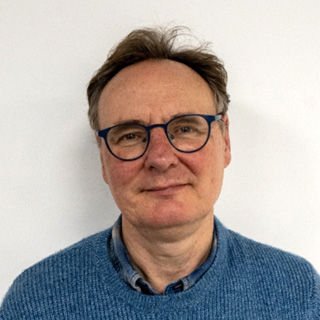
Prof. Peter Gardner
(Manchester Institute of Biotechnology, University of Manchester, United Kingdom)
Peter Gardner is a Professor of Analytical and Biomedical Spectroscopy in the Department of Chemical Engineering and the Photon Science Institute at the University of Manchester. He has previously held research positions at the Max Planck Institute in Berlin and the University of Cambridge. He is a physical chemist with 40 years of research experience in the field of infrared and Raman spectroscopy. In 1999 he turned his attention to applying infrared microscopy to the analysis of cells and tissue. He has been working closely with the Christie hospital in Manchester and the Cancer Research UK Manchester institute developing new methods to analyse tissue samples from biopsies with a view to helping pathologists better diagnose cancer. He is leader of a UK network CLIRPath-AI, bringing together the communities of spectral pathology, digital pathology and computational pathology/AI. He is president of the international society for clinical spectroscopy CLIRSPEC.

Dr Monica Marini
(National Metrological Research Institute, Italy)
Monica Marini pursued her PhD at the University of Trieste, Italy, in 2012 where she designed, synthesized and imaged 2- and 3D DNA-Origami for plant pathogen RNA sensing. In her years at KAUST, Saudi Arabia, and at the Polytechnic of Turin, Italy, she developed new strategies for biomaterials studies combining microfabrication and physical methods to characterize DNA molecules as a background-free method to achieve sub-molecular resolution. Her research is focused on the application of Raman spectroscopy, High-resolution TEM, and vibrational techniques to identify and characterize biomolecules from structural, chemical, and mechanical points of view. At present, her research is mainly centered on the interaction between DNA and methylations, drugs, and heavy metals.
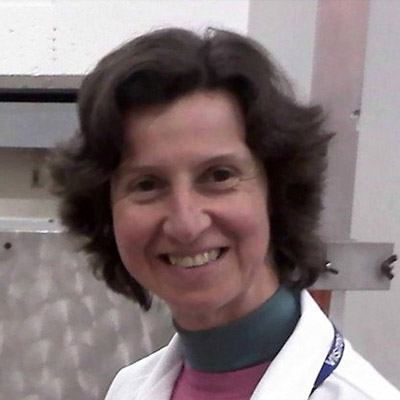
Prof. Maria Paula M. Marques
(University of Coimbra, Portugal)
Maria Paula M. Marques (October 1960, Portugal) received her MSc in Physical-Chemistry (1987), her PhD in Biochemistry (1995) and her habilitation in Biosciences (2018) from the University of Coimbra (Portugal).
M.P.M. Marques is currently an associate professor (with habilitation) at the Dep. Life Sciences of the University of Coimbra, and assistant-coordinator of the R&D Group “Molecular Physical-Chemistry” (QFM-UC). QFM-UC encompasses the vibrational spectroscopy laboratory VIBIMA (Vibrational Spectroscopy Laboratory for Bioprobing) which is a facility of excellence in the field of optical vibrational spectroscopy, comprising state-of-the-art versatile equipment: both macro- and microRaman and FTIR (far and mid-IR, with transmission and ATR configurations).
M.P.M. Marques has authored over 220 scientific papers, 9 book chapters and co-edited 3 books (H-index=38, ca. 5900 citations). She is a Fellow of the Royal Society of Chemistry, a member of the European Spallation Source Science Advisory Committee and of the ISIS User´s Committee, belongs to the Clinical Infrared and Raman Spectroscopy for Medical Diagnosis (CLIRSPEC) as well as to the scientific societies Portuguese Society of Chemistry, Portuguese Society of Biochemistry, Portuguese Society of Pharmacology, and Biophotonics World and International Society for Plant Spectroscopy, is the Portuguese delegate at the European Neutron Scattering Association (ENSA), and is the president of the Group “Neutron and Muon Users in Portugal”. MPM has been a member of the editorial board of several international scientific journals. She was the recipient of the ISIS Neutron & Muon Source Impact Award 2019/Public Engagement & Society, and her team´s work has received several highlights from national and international facilities.
At present, her research is centred on: (i) design of Pt/Pd-based anticancer agents; (ii) development of novel spectroscopic methods for an early diagnosis of cancer and an accurate identification of surgical margins in malignant tumours, aiming at a translation to the clinics; (iii) characterisation of human burned bones, for forensic and archaeological purposes; (iv) improvement of food products/nutraceuticals, through the use of phytochemical compounds as potential chemopreventive agents. Vibrational spectroscopy is the main methodology applied, including leading-edge synchrotron-based methods (FTIR and EXAFS) and neutron scattering techniques.

Prof. Hidetoshi Sato
(Kwansei Gakuin University, Japan)
Hidetoshi Sato is a professor of School of Biological and Environmental Sciences, Kwansei Gakuin University. His final destination is to develop quantitative and measurable biology. He currently applies Raman and FUV spectroscopies and multivariate analyses to live cells and tissues to study various life activities, including virus infection, fat metabolism, cell viability, microplastics intake, and so on.
Enhanced Techniques
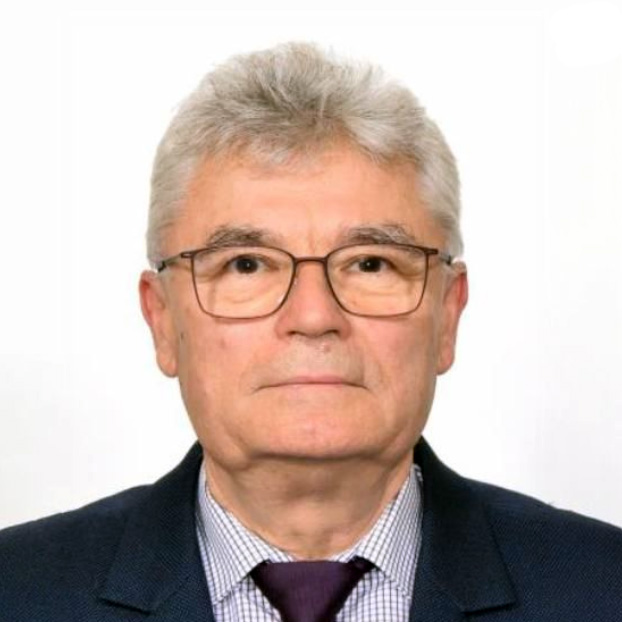
Prof. Simion Aştilean
(Babes-Bolyai University, Romania)
Simion Aștilean graduated in physics at Babes-Bolyai University in Cluj-Napoca, Romania, and received his PhD degree in the field of optical spectroscopy at Joseph Fourier University in Grenoble in 1993. After several post-doctoral and visting scientist positions at the Institute of Optics in Paris (1997), Weizmann Institute in Israel (2000) and University of Exeter in UK (2001-2002), he decided to return to the home country and etablish a new research center in the field of nanobiophotonics at Babeș-Bolyai University in Cluj-Napoca, Romania (see https://nanobiophotonics.ro). The research in Nanobiophotonics and Laser Microspectroscopy Center is focused on development of plasmon-enhanced nano-biosensors for detection and identification of various biomarkers and develpment of new nanoplatforms for biomedical aplications, in particular for cancer therapy and diagnostic using targeted plasmonic hyperthermia combined with photodynamic therapy and drug-delivery, cell imaging and new NIR contrast agents for real-time image-guided cancer surgery. In his research activities, a wide range of methods in optical spectroscopy and microscopy as scanning confocal Raman and fluorescence microscopy, including time-resolved fluorescence FLIM, SERS, metal-enhanced fluorescence (MEF), localized surface plasmon resonance (LSPR) are employed togheter with reliable and less expansive nanofabrication procedures as chemical synthesis of plasmonic nanoparticles, thin film deposition, nanosphere lithography and self-assembling.
Prof. Simion Aștilean has over 35 years experience in research science and has published over 250 peer reviewed articles in plasmonics and healthcare nanomaterials, given more than 200 communications at scientific conferences, including 40 invited/plenary conferences, been citated more than 6600 times (excluding self-citations) in Web of Science with H-index of 44. He has supervised 26 PhD students to completion and trained many qualified researchers in the field of plasmonics for biomedical applications. In 2020 and 2021 was included in the list of the top 2% most cited scientists in the world in his field of research (Stanford Univ. and Elsevier by Scopus). His scientific results have been featured on the covers of journals, disseminated in the media, and presented in highlights on the websites of the journals. He was a finalist and winner in the category "Experienced Researchers. Research Team" at the first edition of the Romanian Research Gala (2023).
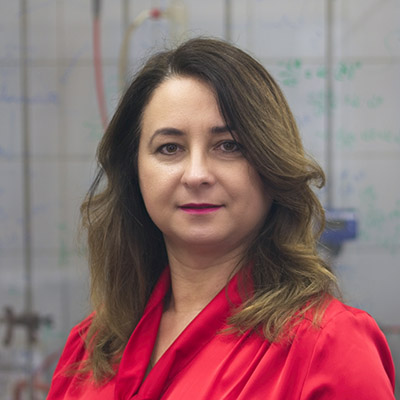
Prof. Agnieszka Kamińska-Michota
(Institute of Physical Chemistry, Polish Academy of Sciences, Poland)
Agnieszka Kamińska-Michota graduated in chemistry from the University of Warsaw in 1999. Then, in 2004, she completed her PhD at the same Faculty of Chemistry, University of Warsaw. After completing an internship at the University of Dublin, she returned to Poland and started working at the Institute of Physical Chemistry of the Polish Academy of Sciences. Since 2017, she has led the "Plasmonic nanostructures for bio-spectroscopic analysis" group (www.bio-sers.com) at the Institute of Physical Chemistry. She co-authors over 85 publications, 12 Polish and nine international patents, and six patent applications.
Her research interest is focusing on the Raman vibrational and the surface-enhanced Raman spectroscopy (SERS), as well as the surface plasmon resonance for the detection and identification of biomolecules (e.g., peptide, protein, DNA, viruses, antigens, antibodies, bacteria, fungi, cancer cells) for analytical and biomedical applications.
Isotopic Labelling
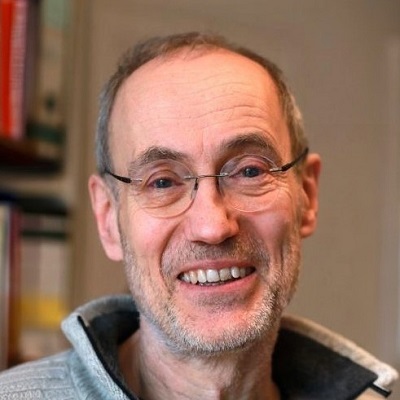
Prof. Andreas Barth
(Stockholm University, Sweden)
Andreas Barth has been active in research in Germany, Great Britain, and Sweden, becoming Associate Professor at Stockholm University in 2002 and Full Professor in 2006. Over the past three decades, he has actively developed and applied biological infrared spectroscopy. His current research focuses on aggregates of the amyloid-β peptide, which are implicated in Alzheimer's disease. He investigates these aggregates using a combination of isotope-edited, experimental and computational infrared spectroscopy, both in bulk solution and on the nanoscale.
Nanoscale Analysis
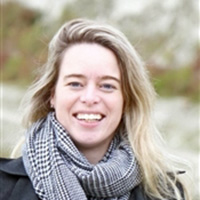
Dr Marlous Kamp
(Utrecht University, Netherlands)
Marlous Kamp is Assistant Professor at Utrecht University in the Netherlands. She carried out her PhD at the same university, working on colloidal synthesis of anisotropic and patchy colloidal particles, and using confocal imaging to study their behavior. As part of her postdoctoral work, she applied confocal Raman imaging on living materials in the group of Prof. Sarah Bohndiek. She received a Marie Curie fellowship to tailor colloidal gold particles for ultrasensitive sensing in the group of Prof. Jeremy Baumberg. Her current research interests lie in using colloidal synthesis techniques to improve imaging substrates.
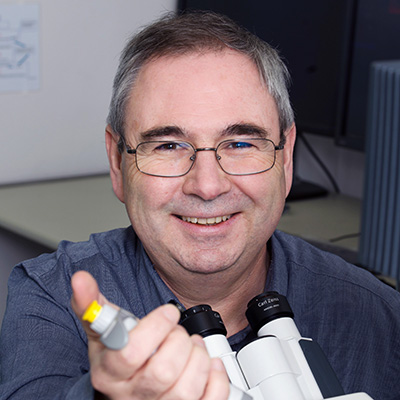
Dr Kaloian Koynov
(Max Planck Institute for Polymer Research, Mainz, Germany)
Kaloian Koynov graduated in physics at the Sofia University in 1993. He received his PhD in Physics from the same university in 1997 for a work on cascaded nonlinear optical processes and their applications for all-optical switching. Then he spent a postdoctoral year at the Institute for Fundamental Electronics, University Paris Sud, studying grating couplers into semiconductor waveguides. In 2000 he joined the Max Planck Institute for Polymer Research in Mainz as a postdoc and later as EU Marie Curie Fellow, working on the nonlinear optical properties of thin films of conjugated polymers. Since 2006 he is a Group Leader at the same institute and leads the Fluorescence Correlation Spectroscopy (FCS) group. His research is centered on developing and applying FCS based approaches to address broad range of questions in polymer, colloid and interface science. A particular focus lies on characterization of drug nanocarriers in biological fluids, such as blood plasma or whole blood.
Non-Linear Optics and Time-Resolved Spectroscopy
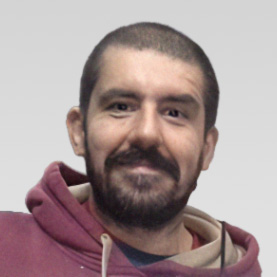
Prof. Gonzalo Angulo
(Institute of Physical Chemistry Polish Academy of Sciences)
Gonzalo Angulo (Sevilla, 1973) is Associate Professor at the Institute of Physical Chemistry of the Polish Academy of Sciences. The main focus of his work since his PhD studies (Graz, 2003) has been the application of physical models to understanding chemical kinetics of photo-induced reactions. His research group is experimenting with diffusion influenced reactions in complex condensed media and developing spectroscopic techniques and analysis methods.
Molecular Spectroscopy
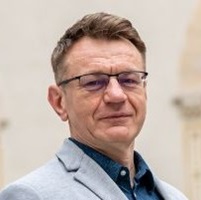
Prof. Tadeusz Andruniów
(Wroclaw University of Science and Technology, Poland)
Tadeusz Andruniów received his Ph.D. in Chemistry from Jagiellonian University, Poland, in 1999.
During his doctoral studies, he participated in an Erasmus program at Lund University (four months), where he worked in the group of a member of the Nobel Committee for Chemistry - Prof. Bjorn O. Roos.
He did his postdoctoral trainings at the University of Louisville, USA, with Prof. Paweł M. Kozlowski and at University of Nancy/CNRS in France, with Dr. Fabrice Leclerc. In 2002 he was awarded a Marie Curie Individual Fellowship from the European Commission to become a research staff member of Prof. Massimo Olivucci group at the University of Siena, Italy. He joined the Wroclaw University of Science and Technology, Poland, upon receiving Marie Curie Reintegration Grant from the European Commission in 2005. In 2008 he received his habilitation degree in Biophysics from Jagiellonian University. In 2009 he was awarded POLITYKA prize for young scientists. He is currently a Full Professor of Chemistry and the Director of the Institute of Advanced Materials at Wroclaw University of Science and Technology. His research deals with the application of computational chemistry methods for understanding the molecular basis of photo-induced processes in biological systems.
Neil T. Hunt (NTH) moved to the University of York to take up the post of Professor of Physical Chemistry in 2018 having previously been appointed to a Professorship in Ultrafast Chemical Physics at the University of Strathclyde in 2016.
Research in the NTH group uses ultrafast two-dimensional infrared (2D-IR) spectroscopy to determine the role of fast structural and solvation dynamics in biomolecular processes, ranging from ligand binding to proteins and DNA to the reactions that occur in the active sites of enzymes. Recently, we have developed a method of performing 2D-IR spectroscopy of biological samples in H2O rich fluids, leading to new applications ranging from high throughput protein-drug screening to categorising the protein content of biofluid samples using machine learning tools.
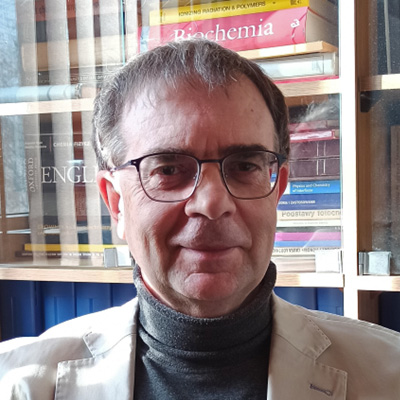
Prof. Marian Wolszczak
(Lodz University of Technology, Poland)
Marian Wolszczak is an Associate Professor at the Institute of Applied Radiation Chemistry of the Lodz University of Technology. For over forty years, he has been researching the electron transfer process in organized systems (proteins, polymer membranes, micelles, low-temperature matrices, polyelectrolytes, including DNA). The main experimental techniques are pulsed radiolysis and laser flash photolysis. His current research focuses on the effect of ionizing radiation on spontaneously formed aggregates in protein and enzyme solutions.
Chemometric Advances
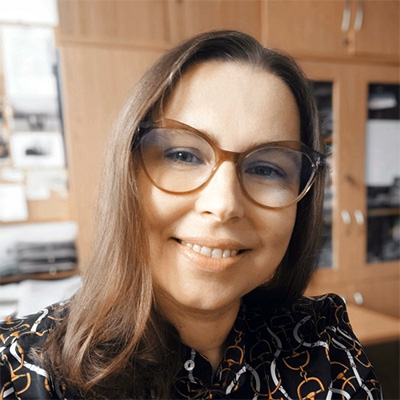
Dr hab. Katarzyna Cieślik-Boczula
(University of Wroclaw, Poland)
Katarzyna Cieślik-Boczula received her MSc in Biotechnology from University of Wroclaw, Poland, in 2002, her Ph.D. and habilitation in Chemistry from University of Wroclaw, Poland, in 2007 and 2020, respectively. Current areas of her research involve studies on the structure and physicochemical properties of lipid membrane and protein systems using FTIR, VCD, fluorescence spectroscopy, TEM and DSC methods. Her interests include processes of fibrillogenesis, modification of fibrillogenesis , as well as membrane-dependent mechanisms of chemopreventive activity of biological compounds and aesthetic molecules.

Dr Mark Keating
(Technological University Dublin, Ireland)
Mark Keating completed his undergraduate studies in Pharmacology from University College Dublin, graduating with and Honours Degree in 2010. Following on from this in 2011 he pursued a Masters Degree in Imaging and Microscopy, from University College Dublin. Continuing his study, Mark pursued a PhD at the then Dublin Institute of Technology (now Technological University Dublin), with the primary focus on the development of novel multivariate algorithms for analysis of spectroscopic data from drug and nanoparticle interaction. Currently Mark is pursuing postdoctoral research in the area of viruses and spectroscopy, with a particular emphasis on modelling and datamining the viral life cycle.
